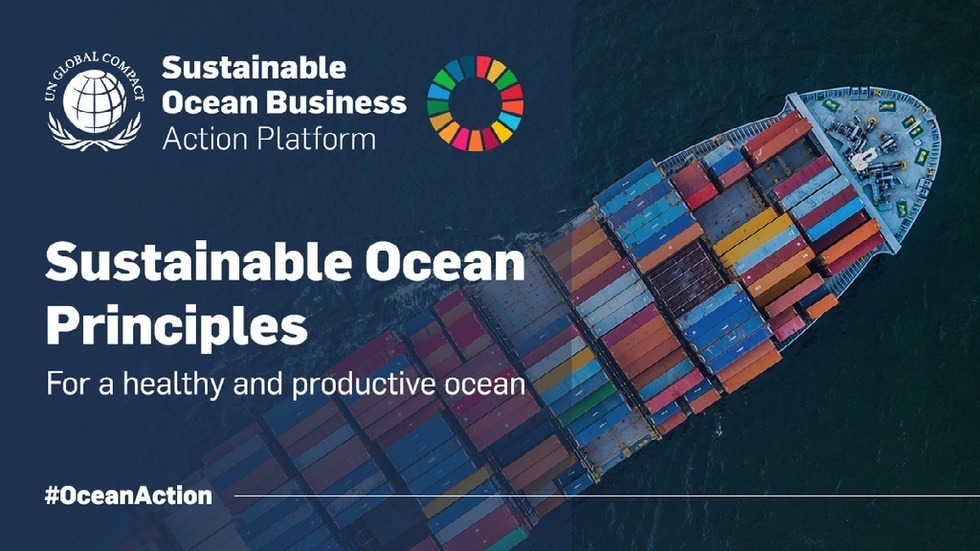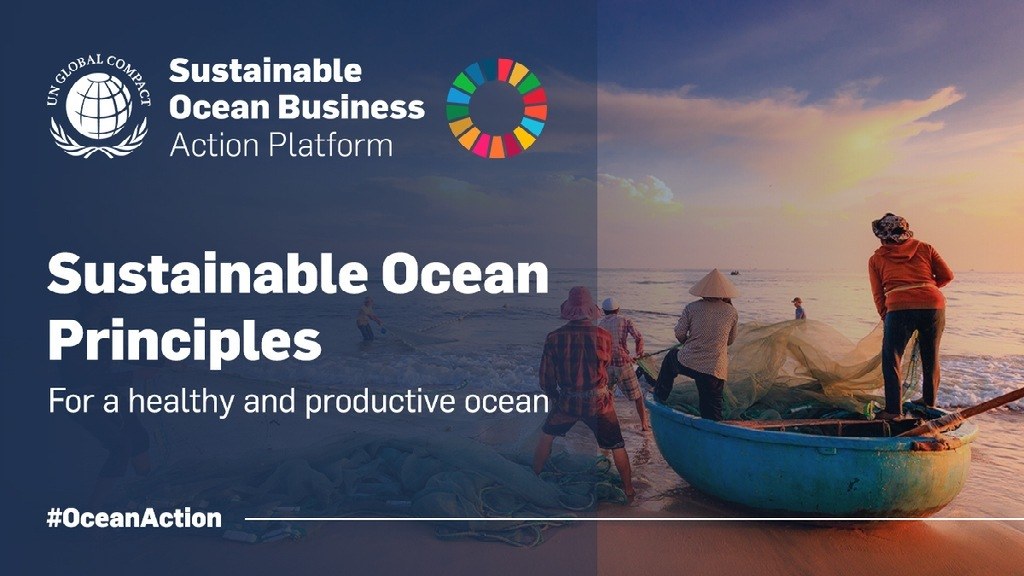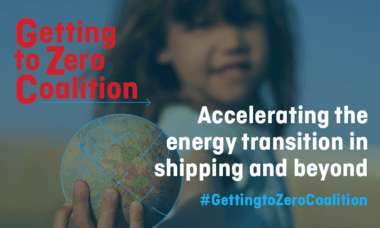Odfjell SE’s Sustainability strategy, as published in 2018, is based on the United Nations Global Compact’s ten principles and the UN Sustainable Development Goals (SDGs). These goals and principles provide us with a common plan and agenda to tackle some of the most pressing global challenges, such as poverty, climate change and conflict.

The nine Ocean Principles build on and supplement the SDGs. By specifying what actions the ocean industries must take, these principles provide a framework for responsible business practices in the oceans, across sectors and geographies.
“A healthy and productive ocean will be key to deliver on all the 17 Sustainable Development Goals, as the world needs more sustainable food, energy and transport”, the UN stated when launching the principles in September.
“The 2030 Agenda for Sustainable Development calls on all stakeholders to conserve and sustainably use the ocean, seas and marine resources for sustainable development. Businesses have a shared responsibility, alongside governments and civil society, to take necessary actions and secure a healthy ocean.”
The Ocean Principles have been developed in consultation with more than 300 stakeholders worldwide.
Collaboration is key
Committing to the Ocean Principles is a natural next step in Odfjell SE’s stated aim to build a sustainable future. In addition to our own numerous and ongoing sustainability projects, Odfjell participates in various industry-wide collaboration projects – among them the ‘Getting to Zero’ coalition, a global alliance working to operate zero-emission vessels on deep-sea trades by 2030.
The Ocean Principles aim to explore attractive, viable solutions and best practices for sustainable use and management of the ocean. UN states:
“By bringing together the leading industries in aquaculture, energy production, fisheries and shipping with key banks, equity funds and insurance companies, the platform has a cross-industry, cross-UN and cross-Global Goals approach. The platform is designed to drive decision-making processes and catalyze partnerships to advance shared ocean priorities across all 17 Global Goals with a specific aim to scale up the commitments and performance of companies on this critical agenda”
As one of the first industry signatories, Odfjell commits to take action to prevent pollution, manage our use of marine resources to ensure long-term sustainability, and be transparent about our ocean-related activities and impact.
“As a global company, we have a responsibility to our employees, our investors, our customers, to the local communities where we operate, and to the global environment. By signing up to this initiative, we join businesses from around the world in setting clear and shared expectations industry-wide for a healthy and productive ocean. We look forward to contributing”
CEO Kristian Mørch, Odfjell SE

Sustainable Ocean Principles
OCEAN HEALTH AND PRODUCTIVITY
Principle 1: Assess the short- and long-term impact of their activities on ocean health and incorporate such impacts into their strategy and policies.
Principle 2: Consider sustainable business opportunities that promote or contribute to restoring, protecting or maintaining ocean health and productivity and livelihoods dependent on the ocean.
Principle 3: Take action to prevent pollution affecting the ocean, reduce greenhouse gas emissions in their operations to prevent ocean warming and acidification, and work towards a circular economy.
Principle 4: Plan and manage their use of, and impact on, marine resources and space in a manner that ensures long-term sustainability and take precautionary measures where their activities may impact vulnerable marine and coastal areas and the communities that are dependent upon them.
GOVERNANCE AND ENGAGEMENT
Principle 5: Engage responsibly with relevant regulatory or enforcement bodies on ocean-related laws, regulations and other frameworks.
Principle 6: Follow and support the development of standards and best practices that are recognized in the relevant sector or market contributing to a healthy and productive ocean and securing livelihoods.
Principle 7: Respect human-, labour- and indigenous peoples’ rights in the company’s ocean related activities, including exercise appropriate due diligence in their supply-chain, consult and engage with relevant stakeholders and communities in a timely, transparent and inclusive manner, and address identified impacts.
DATA AND TRANSPARENCY
Principle 8: Where appropriate, share relevant scientific data to support research on and mapping of relevance to the ocean.
Principle 9: Be transparent about their ocean-related activities, impacts and dependencies in line with relevant reporting frameworks.
About the United Nations Global Compact
As a special initiative of the UN Secretary-General, the United Nations Global Compact works with companies everywhere to align their operations and strategies with ten universal principles in the areas of human rights, labor, environment and anti-corruption.
Launched in 2000, the UN Global Compact guides and supports the global business community in advancing UN goals and values through responsible corporate practices. With more than 9,500 companies and 3,000 non-business signatories based in over 160 countries, and 70 Local Networks, it is the largest corporate sustainability initiative in the world.



